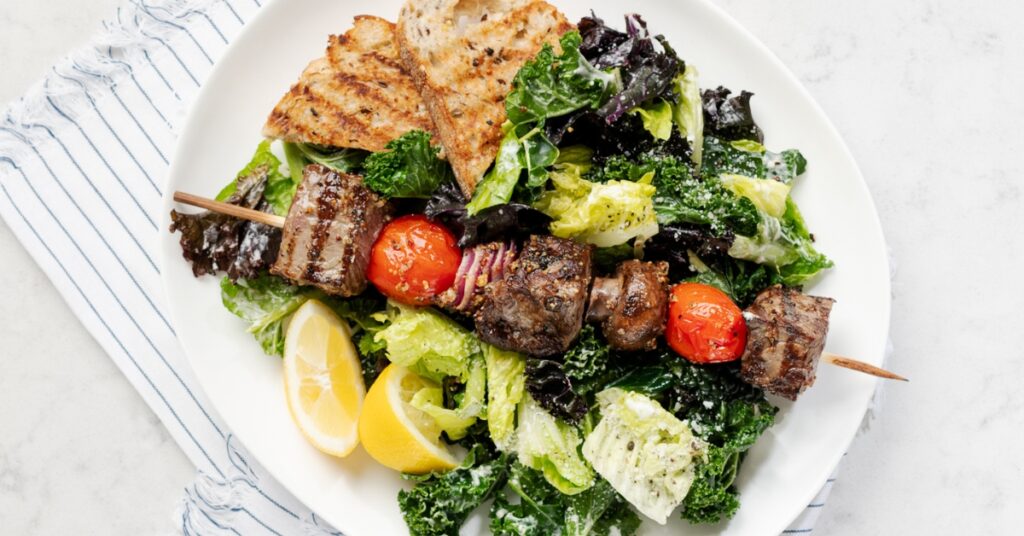New for 2023: Update of the Dietary Reference Intakes for Energy

The Dietary Reference Intakes (DRIs) for Energy, used by Canadian health professionals as guidance for maintaining energy balance in individuals, have been updated for the first time since 2005—and they have become more inclusive.
The DRIs have long been applied in health-care settings, policy development, and school meal programs, for example. The reference values for energy were revised by an expert committee at the National Academy of Sciences in the United States, at the request of the Canadian and U.S. governments.
As a fitness pro, you have likely come across the DRIs for energy and macronutrients in your professional development. They provide recommended nutrient intakes and offer a baseline for estimating energy needs and monitoring energy balance. Every bodily function, from respiration and circulation to physical work, uses energy, which we get from carbohydrates, proteins, and fat. Our energy balance depends on our energy intake and our energy expenditure, which is impacted by many factors and is still an active area of research. The expert committee prioritized areas where future research is required.
What’s new in the 2023 DRIs for energy?
The DRIs for energy, called the Estimated Energy Requirements (EERs), are defined as “the average dietary energy intake that is predicted to maintain energy balance in an adult of a defined age, sex, weight, height, level of physical activity, and life stage, consistent with maintaining health.”
The committee notes that the populations of Canada and the U.S. have “experienced an imbalance in their energy intake and expenditure during the past several decades, such that weight status has trended toward overweight and obesity across demographic groups.” In addition, during that time, researchers learned a lot about analyzing energy expenditure in people with certain characteristics and at different life stages.
Based on these developments, the new DRIs for energy have two major changes compared to the 2005 version:
- The DRI population has been expanded from the “generally healthy population” to the “general population,” meaning that it now includes people who have chronic diseases or are overweight or obese.
- The databases used for analysis have been expanded to include more diverse population groups, where data has become available. (The committee notes that more research is needed.)
To learn more, visit the National Academies website.
Get to know the new DRIs, but…
While the new DRIs for energy are a helpful tool, our focus should continue to be improving overall diet quality, not on counting calories.
Where to start? Currently, Canadians get almost half (45%) of their calories from ultra-processed foods such as sweetened baked goods, drinks, and cereals; pizza; chips; and candy. A focus on replacing ultra-processed foods with naturally nutrient-rich ones will improve overall diet quality. I’ve written about the vast nutrient shortfalls in the Canadian diet. In addition, a recent randomized controlled study found that eating ultra-processed foods increased energy intake.
Plant-rich diets that include nutrient-dense foods like vegetables, fruits, meats, whole grains, seafood, milk/soy milk, beans, tofu, and lentils tend to be lower in calories, so focusing on quality food choices can help to meet nutrient needs while moderating energy intakes.
What can you do as a fitness professional? Share plant-rich, nutrient-dense recipes like this one:
Veggie-Beef Skewers and Kale Caesar Salad
This appetizing dish has it all: nutritious beef, five types of veggies, including crisp leafy greens and a tangy salad dressing that is as creamy as it is nourishing. (The secret? Silken tofu.) Beef provides protein, iron, zinc, and vitamin B12, while the kale is packed with vitamins A and C, plus calcium and other essential minerals.
Yield: 4 servings
Prep time: 30 minutes
Cook time: 15 minutes
Total time: 45 minutes
INGREDIENTS
Salad
1 pkg (150 g) soft (silken) tofu (approx. ¾ cup)
1/4 cup olive oil
2 tbsp grated Parmesan cheese (approx.)
2 tbsp lemon juice
1 tbsp red wine vinegar
1 tsp each Dijon mustard and Worcestershire sauce
2 cloves garlic, chopped
1/4 tsp each salt and freshly ground black pepper (approx.)
6 cups shredded kale
4 cups torn Romaine lettuce
Skewers
2 tbsp each oil and grainy Dijon mustard
1 tbsp Montreal steak spice
3/4 lb (375 g) kabob cubes or beef grilling steak (e.g., top sirloin or strip loin), cut into 1-inch cubes
12 cremini or button mushrooms
12 cherry or grape tomatoes
1 small red onion, cut into chunks
DIRECTIONS
1. Place tofu, olive oil, Parmesan, lemon juice, vinegar, mustard, Worcestershire sauce, garlic, salt, and pepper in a blender. Blend until smooth and well combined. Toss 3/4 cup dressing with kale (reserve remainder for future salad). Cover and chill for 30 minutes.
2. Preheat grill to medium-high heat; grease grate well. In a small bowl, whisk oil with mustard and steak spice. Alternately thread steak, mushrooms, tomatoes, and onion onto four soaked wooden or metal skewers. Brush all over with spice mixture. Grill skewers for eight to 10 minutes, turning at least twice, for medium-rare doneness.
3. Add romaine lettuce and remaining dressing to kale salad. Toss to combine well. Divide salad evenly among four plates. Garnish with additional grated Parmesan and black pepper. Top with skewers.
TIPS
- Skewers can be cooked on a stovetop. Sear skewers in a cast-iron skillet set over medium-high heat and finish them under the broiler.
- Use up any remaining silken tofu in your next smoothie or soup.
- You can double the recipe—the cooked beef, salad dressing and greens (washed, chopped, and undressed) will keep up to three days in the fridge.

